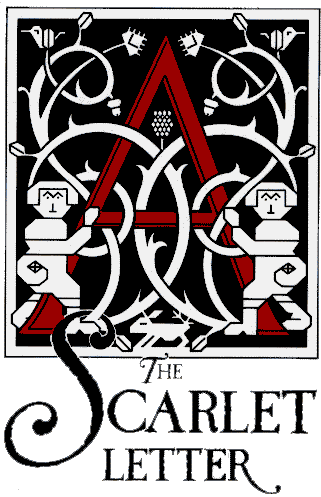奥兰多orlando (英文版)作者:弗吉尼亚·伍尔芙-第26部分
按键盘上方向键 ← 或 → 可快速上下翻页,按键盘上的 Enter 键可回到本书目录页,按键盘上方向键 ↑ 可回到本页顶部!
————未阅读完?加入书签已便下次继续阅读!
gton House; the dawn was in the sky; and she was pulling off her stockings。 ‘I don’t care if I never meet another soul as long as I live;’ cried Orlando; bursting into tears。 Lovers she had in plenty; but life; which is; after all; of some importance in its way; escaped her。 ‘Is this’; she asked—but there was none to answer; ‘is this’; she finished her sentence all the same; ‘what people call life?’ The spaniel raised her forepaw in token of sympathy。 The spaniel licked Orlando with her tongue。 Orlando stroked the spaniel with her hand。 Orlando kissed the spaniel with her lips。 In short; there was the truest sympathy between them that can be between a dog and its mistress; and yet it cannot be denied that the dumbness of animals is a great impediment to the refinements of intercourse。 They wag their tails; they bow the front part of the body and elevate the hind; they roll; they jump; they paw; they whine; they bark; they slobber; they have all sorts of ceremonies and artifices of their own; but the whole thing is of no avail; since speak they cannot。 Such was her quarrel; she thought; setting the dog gently on to the floor; with the great people at Arlington House。 They; too; wag their tails; bow; roll; jump; paw; and slobber; but talk they cannot。 ‘All these months that I’ve been out in the world’; said Orlando; pitching one stocking across the room; ‘I’ve heard nothing but what Pippin might have said。 I’m cold。 I’m happy。 I’m hungry。 I’ve caught a mouse。 I’ve buried a bone。 Please kiss my nose。’ And it was not enough。
How; in so short a time; she had passed from intoxication to disgust we will only seek to explain by supposing that this mysterious position which we call society; is nothing absolutely good or bad in itself; but has a spirit in it; volatile but potent; which either makes you drunk when you think it; as Orlando thought it; delightful; or gives you a headache when you think it; as Orlando thought it; repulsive。 That the faculty of speech has much to do with it either way; we take leave to doubt。 Often a dumb hour is the most ravishing of all; brilliant wit can be tedious beyond description。 But to the poets we leave it; and so on with our story。
Orlando threw the second stocking after the first and went to bed dismally enough; determined that she would forswear society for ever。 But again as it turned out; she was too hasty in ing to her conclusions。 For the very next morning she woke to find; among the usual cards of invitation upon her table; one from a certain great Lady; the Countess of R。 Having determined overnight that she would never go into society again; we can only explain Orlando’s behaviour—she sent a messenger hot–foot to R— House to say that she would attend her Ladyship with all the pleasure in the world—by the fact that she was still suffering from the effect of three honeyed words dropped into her ear on the deck of the “Enamoured Lady” by Captain Nicholas Benedict Bartolus as they sailed down the Thames。 Addison; Dryden; Pope; he had said; pointing to the Cocoa Tree; and Addison; Dryden; Pope had chimed in her head like an incantation ever since。 Who can credit such folly? but so it was。 All her experience with Nick Greene had taught her nothing。 Such names still exercised over her the most powerful fascination。 Something; perhaps; we must believe in; and as Orlando; we have said; had no belief in the usual divinities she bestowed her credulity upon great men—yet with a distinction。 Admirals; soldiers; statesmen; moved her not at all。 But the very thought of a great writer stirred her to such a pitch of belief that she almost believed him to be invisible。 Her instinct was a sound one。 One can only believe entirely; perhaps; in what one cannot see。 The little glimpse she had of these great men from the deck of the ship was of the nature of a vision。 That the cup was china; or the gazette paper; she doubted。 When Lord O。 said one day that he had dined with Dryden the night before; she flatly disbelieved him。 Now; the Lady R。’s reception room had the reputation of being the antechamber to the presence room of genius; it was the place where men and women met to swing censers and chant hymns to the bust of genius in a niche in the wall。 Sometimes the God himself vouchsafed his presence for a moment。 Intellect alone admitted the suppliant; and nothing (so the report ran) was said inside that was not witty。
It was thus with great trepidation that Orlando entered the room。 She found a pany already assembled in a semicircle round the fire。 Lady R。; an oldish lady; of dark plexion; with a black lace mantilla on her head; was seated in a great arm–chair in the centre。 Thus being somewhat deaf; she could control the conversation on both sides of her。 On both sides of her sat men and women of the highest distinction。 Every man; it was said; had been a Prime Minister and every woman; it was whispered; had been the mistress of a king。 Certain it is that all were brilliant; and all were famous。 Orlando took her seat with a deep reverence in silence。。。After three hours; she curtseyed profoundly and left。
But what; the reader may ask with some exasperation; happened in between。 In three hours; such a pany must have said the wittiest; the profoundest; the most interesting things in the world。 So it would seem indeed。 But the fact appears to be that they said nothing。 It is a curious characteristic which they share with all the most brilliant societies that the world has seen。 Old Madame du Deffand and her friends talked for fifty years without stopping。 And of it all; what remains? Perhaps three witty sayings。 So that we are at liberty to suppose either that nothing was said; or that nothing witty was said; or that the fraction of three witty sayings lasted eighteen thousand two hundred and fifty nights; which does not leave a liberal allowance of wit for any one of them。
The truth would seem to be—if we dare use such a word in such a connection—that all these groups of people lie under an enchantment。 The hostess is our modern Sibyl。 She is a witch who lays her guests under a spell。 In this house they think themselves happy; in that witty; in a third profound。 It is all an illusion (which is nothing against it; for illusions are the most valuable and necessary of all things; and she who can create one is among the world’s greatest benefactors); but as it is notorious that illusions are shattered by conflict with reality; so no real happiness; no real wit; no real profundity are tolerated where the illusion prevails。 This serves to explain why Madame du Deffand said no more than three witty things in the course of fifty years。 Had she said more; her circle would have been destroyed。 The witticism; as it left her lips; bowled over the current conversation as a cannon ball lays low the violets and the daisies。 When she made her famous ‘mot de Saint Denis’ the very grass was singed。 Disillusionment and desolation followed。 Not a word was uttered。 ‘Spare us another such; for Heaven’s sake; Madame!’ her friends cried with one accord。 And she obeyed。 For almost seventeen years she said nothing memorable and all went well。 The beautiful counterpane of illusion lay unbroken on her circle as it lay unbroken on the circle of Lady R。 The guests thought that they were happy; thought that they were witty; thought that they were profound; and; as they thought this; other people thought it still more strongly; and so it got about that nothing was more delightful than one of Lady R。’s assemblies; everyone envied those who were admitted; those who were admitted envied themselves because other people envied them; and so there seemed no end to it—except that which we have now to relate。
For about the third time Orlando went there a certain incident occurred。 She was still under the illusion that she was listening to the most brilliant epigrams in the world; though; as a matter of fact; old General C。 was only saying; at some length; how the gout had left his left leg and gone to his right; while Mr L。 interrupted when any proper name was mentioned; ‘R。? Oh! I know Billy R。 as well as I know myself。 S。? My dearest friend。 T。? Stayed with him a fortnight in Yorkshire’—which; such is the force of illusion; sounded like the wittiest repartee; the most searching ment upon human life; and kept the pany in a roar; when the door opened and a little gentleman entered whose name Orlando did not catch。 Soon a curiously disagreeable sensation came over her。 To judge from their faces; the rest began to feel it as well。 One gentleman said there was a draught。 The Marchioness of C。 feared a cat must be under the sofa。 It was as if their eyes were being slowly opened after a pleasant dream and nothing met them but a cheap wash–stand and a dirty counterpane。 It was as if the fumes of some delicious wine were slowly leaving them。 Still the General talked and still Mr L。 remembered。 But it became more and more apparent how red the General’s neck was; how bald Mr L。’s head was。 As for what they said—nothing more tedious and trivial could be imagined。 Everybody fidgeted and those who had fans yawned behind them。 At last Lady R。 rapped with hers upon the arm of her great chair。 Both gentlemen stopped talking。
Then the little gentleman said; He said next; He said finally (These sayings are too well known to require repetition; and besides; they are all to be found in his published works。);
Here; it cannot be denied; was true wit; true wisdom; true profundity。 The pany was thrown into plete dismay。 One such saying was bad enough; but three; one after another; on the same evening! No society could survive it。
‘Mr Pope;’ said old Lady R。 in a voice trembling with sarcastic fury; ‘you are pleased to be witty。’ Mr Pope flushed red。 Nobody spoke a word。 They sat in dead silence some twenty minutes。 Then; one by one; they rose and slunk from the room。 That they would ever e back after such an experience was doubtful。 Link–boys could be heard calling their coaches all down South Audley Street。 Doors were slammed and carriages drove off。 Orlando found herself near Mr Pope on the staircase。 His lean and misshapen frame was shaken by a variety of emotions。 Darts of malice; rage; triumph; wit; and ter
![[网王同人]colorless wind封面](http://www.baxi2.com/cover/noimg.jpg)
![[bbcsherlock]致我心中的你封面](http://www.baxi2.com/cover/22/22011.jpg)


